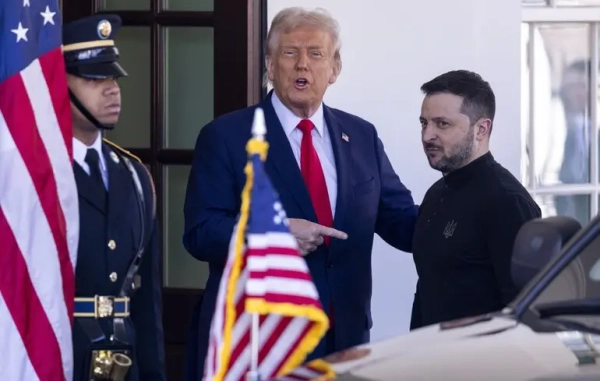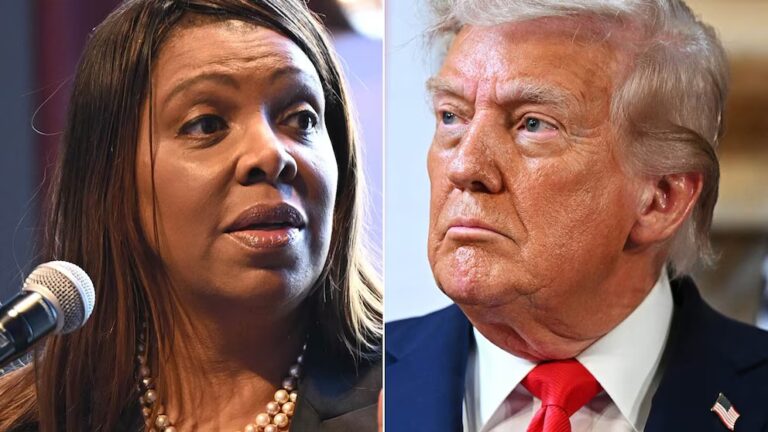Last week, during the historic series of 15 votes for House speaker, Americans had a view of their elected lawmakers rarely seen on their TV and computer screens.
Normally, what's seen is tightly controlled by the party in power, with House cameras showing only a few different looks limited to those making speeches — and to the dais and well of the House.
But with the new Congress and no speaker chosen, the Republican-led House had yet to pass rules on how things would be run.
That allowed multiple extra C-SPAN cameras to capture scenes from all over the chamber, including a heated confrontation between GOP Reps. Mike Rogers and Matt Gaetz, who was spoiling Kevin McCarthy's bid to win the speaker's gavel.
Then, Gaetz and McCarthy exchanging words after he lost yet another vote.
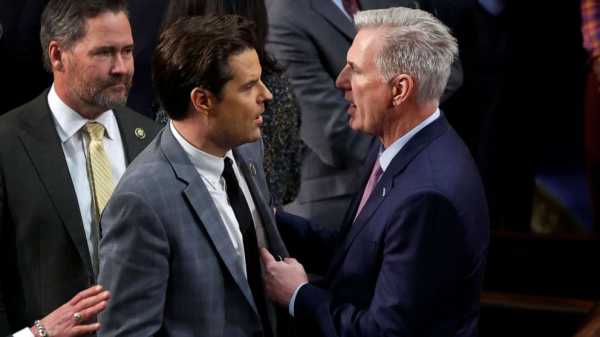
U.S. House Republican Leader Kevin McCarthy (R-CA) talks to Rep.-elect Matt Gaetz (R-FL) in the House Chamber on the fourth day of voting for Speaker of the House at the U.S. Capitol Building, Jan. 6, 2023, in Washington.Chip Somodevilla/Getty Images
Americans also got to see close-up shots of GOP Rep. Marjorie Taylor Greene extending her phone with former President Donald Trump on the line.
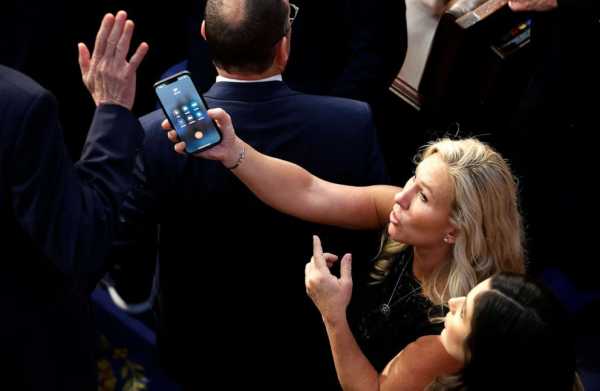
Rep.-elect Matt Rosendale (R-MT) refuses to talk with former President Donald Trump on a phone being offered by Rep.-elect Marjorie Taylor Greene (R-GA) at the U.S. Capitol Building, January 6, 2023, in Washington.Chip Somodevilla/Getty Images
They could witness, too, an unlikely chat between the normally dueling Republican and Democratic firebrands Paul Gosar and Alexandria Ocasio Cortez — moments some onlookers said rivaled something out of a reality show.
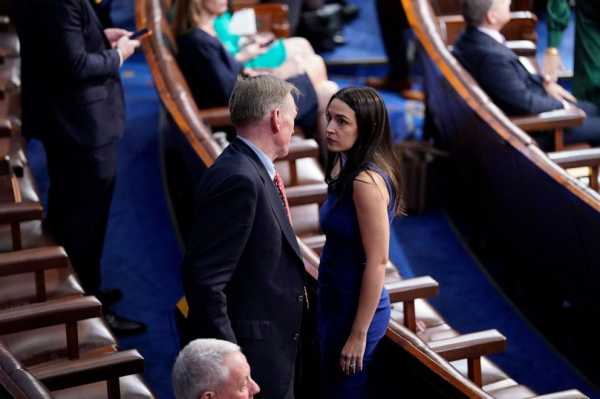
Rep. Paul Gosar (R-Ariz.) talks with Rep. Alexandria Ocasio-Cortez (D-N.Y.) on the opening day of the 118th Congress, Jan. 3, 2023, in Washington.Jabin Botsford/The Washington Post via Getty Images
Now, a few lawmakers and the CEO of the public affairs channel are among those calling upon newly-elected Speaker McCarthy to do what his bipartisan predecessors have for decades decided against doing: grant permission to continue using independent cameras in the House chamber, broadening the increased "transparency" Republicans promised.
"We do not propose replacing the existing House Recording System or its output. Instead, we request to install a few additional cameras in the House chamber," C-SPAN CEO Susan Swain wrote in a letter addressed to McCarthy on Tuesday when she requested permission to "cover floor proceedings on behalf of our network and all Congressionally-accredited news organizations."
"When mixed with the existing House production, shots from our cameras would allow us to create a second, journalistic product, just as we did last week," she argued.
The access spurred support from both Democrats and Republicans, some of whom have said they'll introduce measures to expand C-SPAN's ability to show more of the House floor.
MORE: After McCarthy's deal to become speaker, House GOP takes up new rules
"Last week, America watched in real time how our government is functioning," Gaetz tweeted Tuesday, following an announcement on his plans to introduce an amendment to the Republican rules package that would always allow C-SPAN cameras to stay.
"Broader transparency in Congress is a net positive, and we need more of it," said Gaetz — the House Freedom Caucus member who led the faction of Republicans blocking McCarthy's speaker bid and the focus of much of the expanded coverage.
Before Gaetz announced his proposal, progressive Wisconsin Democrat Mark Pocan laid out his vision for broadened floor coverage.
"Last week's @CSPAN coverage was worthy of an Oscar," Pocan tweeted Monday. "That's why I'm introducing legislation requiring House cameras to continue to capture the full Chamber & not just what the Speaker wants."
Pocan's proposal was signed onto by Democratic Rep. Maxwell Frost of Florida, the first Generation Z member of Congress.
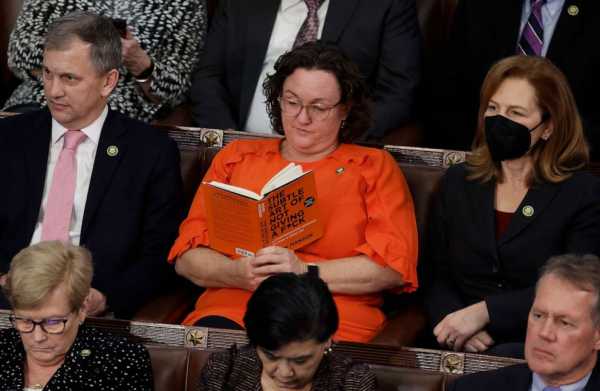
U.S. Rep.-elect Katie Porter (D-CA) reads a book in the House Chamber during the fourth day of elections for Speaker of the House at the U.S. Capitol Building, Jan. 6, 2023 in Washington.Anna Moneymaker/Getty Images
MORE: New Congress live updates: What's next after Kevin McCarthy's speakership win
"Proud to be co-sponsoring @RepMarkPocan's legislation to free the House cameras so our people can see democracy in action. This is a small but important step towards transparency and accountability in our government. #FreeCSPAN," he said Monday on Twitter.
Pocan's legislation is also co-sponsored by Democratic Reps. Mark Takano of California, Nydia Velazquez of New York and Donald Payne of New Jersey.
McCarthy has yet to respond to his members' requests.
The fight for expanded floor coverage has spanned decades, however, and was shot down by the most recent speaker, Democrat Nancy Pelosi, along with her GOP predecessors Paul Ryan, John Boehner and Dennis Hastert.
Former Republican Speaker Newt Gingrich in 1995 ordered the C-SPAN cameras start cutting to shots of the broader chamber while House members spoke, which was met with a letter signed on by 30 Republicans urging their leader against anything but the standard video feed.
C-SPAN has been requesting expanded coverage since Gingrich's tenure: "We at C-SPAN are among those who have long been interested in expanded access to Congress," the channel's then-CEO Brian Lamb wrote in a letter ahead of the 104th Congress. "Allow C-SPAN cameras into places where they've historically been excluded — most importantly, into the chamber of the U.S. House of Representatives."
Sourse: abcnews.go.com

